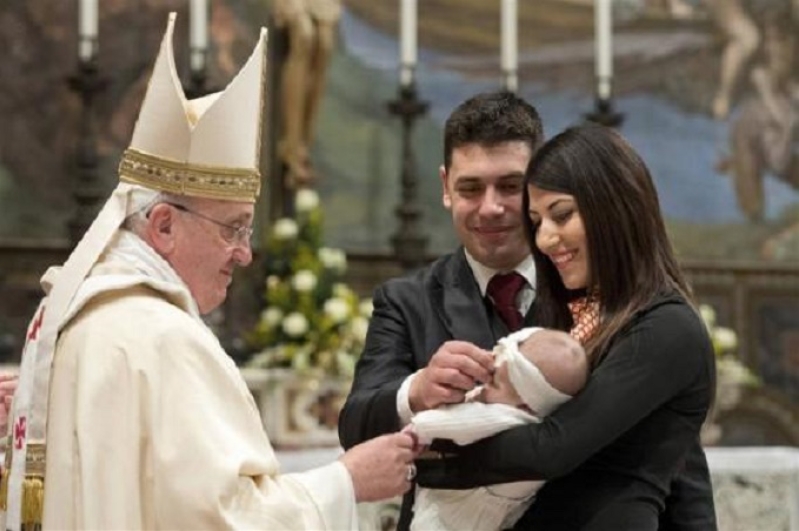
As a reflection of the baptism of Jesus Christ, Pope Francis baptized 26 infants on Sunday, urging parents to nurture the faith in the lives of their children, referring to it as "the greatest inheritance" they can give.
According to CNN, thirteen girls and thirteen boys were baptized during the Feast of the Baptism of the Lord in the Sistine Chapel, the celebrated chapel in the Apostolic Palace, the Pope's official residence.
During his homily, Francis urged parents to encourage their children in the faith: "Do not forget that the greatest legacy that you can give your children is faith. Cherish it to make sure is not lost, to make it grow and to leave it as a legacy," he said, according to a statement from the Vatican press office.
The pontiff also told parents that in bringing their children to the chapel to receive baptism, they are imitating the act of Mary and Joseph, who, 40 days after Jesus' birth, brought him to the temple to present him to God.
He reminded parents that Biblical instruction is the greatest gift they can give their children: "This is what I wish for you today, which is a joyful day for you," he said. "I hope that you will be able to help these children grow in the faith, and that the greatest inheritance they can receive from you is the faith."
The pontiff frequently addresses hot-button issues concerning the Roman Catholic Church such as poverty, homosexuality, abortion, divorce, and immigration. Many of Francis' thoughts on such issues will be included in a new interview book titled The Name of God is Mercy, to be released in 80 countries on Tuesday.
In his book, Francis argues that mercy is "Jesus' most important message," as it is essential because all men are sinners, in need of God's forgiveness and grace. Such mercy is especially necessary today, at a time when "humanity is wounded," suffering from "the many slaveries of the third millennium" - not just war and poverty and social exclusion, but also hardheartedness and self-righteousness.
The Pope's new book comes soon after his December 8 announcement of the 2016 Jubilee Year of Mercy, in which he called on Catholics around the world to embrace the gospel of mercy, as opposed to the judgment of sinners.
Writes Michiko Kakutani of the New York Times: "Francis speaks succinctly...chastising 'scholars of the law' who 'live attached to the letter of the law but who neglect love; men who only know how to close doors and draw boundaries.' Instead, he urges people to think of the church as 'a field hospital, where treatment is given above all to those who are most wounded.' Often speaking here more as a pastor than as the vicar of Christ, he emphasizes moral sincerity over dogma, an understanding of the complexities of the world and individual experience over rigid doctrine."
According to a Pew Research Center survey conducted in March, Pope Francis enjoys a 90% favorability rating among U.S. Catholics, while 74% of white mainline Protestants and 60% of white evangelical Protestants say they view him favorably.






